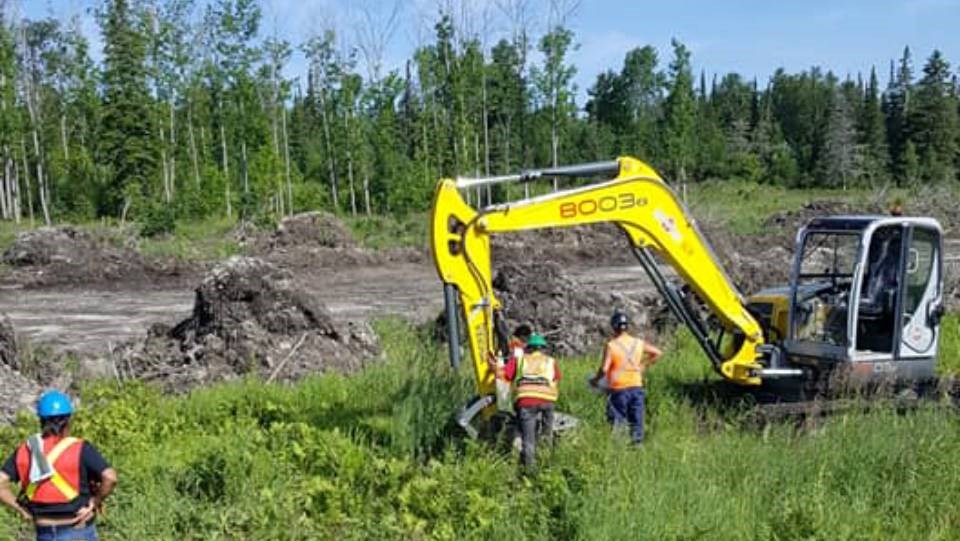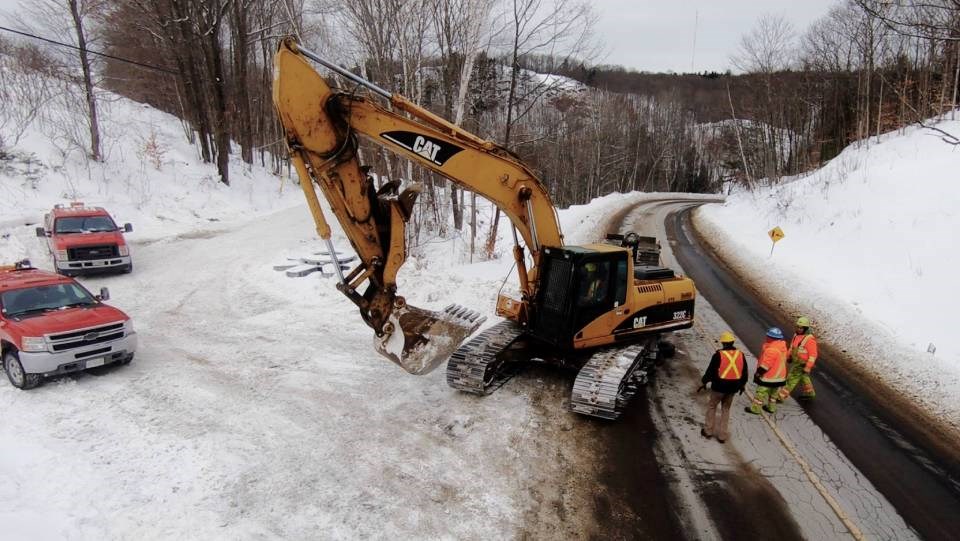A new road construction partnership holds the promise of employment and long-term contract work for a trio of First Nation communities in northeastern Ontario.
Shwe Miikaan — a construction company owned by Shawanaga, Magnetawan and Henvey Inlet First Nations — has struck a teaming agreement with SNC-Lavalin in anticipation of the upcoming final leg of four-laning on Highway 69/400.
The company made the announcement on Aug. 9.
“As we strive to capture local benefit from the Highway 69/400 twinning project, we remain committed to training and hiring from surrounding First Nations, thus enhancing the potential of our vibrant communities,” Adam Good, Shwe Miikaan’s president, said in a news release.
“SNC-Lavalin, having a rich history in delivering multiple highway and road expansions globally, will be an invaluable partner in realizing our vision for the development of our territories. We hope this will stimulate a ripple effect of beneficial partnerships between Indigenous entities and large, industry-leading companies.”
The four-laning of Highway 69/400 — a vital transportation link that connects Northern Ontario to the southern part of the province — has been ongoing for more than two decades.
In the early 2000s, the provincial government committed to four-laning the entirety of the highway by 2017, but that target came and went without the road being finished.
The last segment of four-laning to be completed, in 2021, stretches between French River and Grundy Provincial Park.
Now, a final 52 kilometres is left of the multi-year project. That portion, located between French River and Parry Sound, is where Shwe Miikaan and SNC-Lavalin come in.
In an interview, Good said the partnership has been in the works for a few months.
Shwe Miikaan, which translates to ‘Three Roads” in Anishinabemowin, was formed in 2015 in an effort by the three communities to capture some of the road-building contracts along the highway, which runs through the territories of all three First Nations.
“The first time Highway 69 went through, the three First Nations didn’t get anything from it,” Good said. “It just went right through, it bypassed us, and there were no benefits towards the communities.”
But he’s optimistic this time will be different, and says the company is open and ready for business.
“We’re hoping and anticipating that we can build the whole remaining 52 kilometres of the highway,” Good said.
“Realistically, we’re not sure if that’ll happen, but in a perfect world, that’s our scope.”

That includes everything from bridge work to design and construction, culvert replacement to building animal crossings, ditching, blasting and more.
Shwe Miikaan recognized early on it wouldn’t be able to take on such a huge project alone, which is when they approached SNC-Lavalin about a partnership.
The Montréal-based company is world-renowned for its engineering and construction expertise across industries.
Their longstanding global expertise combined with Shwe Miikaan’s experience and local knowledge is what the partners believe will make a winning combination.
“Shwe Miikaan brings highly valued expertise in construction and community engagement along the corridor of work on Highway 69 to the table,” said Ben Almond, SNC-Lavalin’s CEO of engineering services for Canada, in the news release.
“A partnership would allow us to draw from each other’s strengths, enabling us to accomplish more than either of us could alone — an overall net benefit to the community.”
Landing the four-laning contract would mean employment for the participating communities, and Shwe Miikaan’s goal is to have a minimum of 51 per cent Indigenous employment on the project.
Because they haven’t yet secured a contract, Good couldn’t say what jobs will need to be filled or how many workers will be needed.
But Shwe Miikaan has been proactive in taking an inventory of skilled workers from communities across the Robinson-Huron Treaty area, so they know where their strengths are and where they need more capacity.
Once they get the go-ahead for the work, community members that are interested in working on the project will be provided with training for the job. That could be anything from heavy equipment operation to carpentry to general construction.
“We’re really trying to get involved as much as we can and really have the Indigenous communities really benefit,” Good said.
Looking ahead to when the project is completed, Good said the company is hopeful of securing maintenance contracts for the highway.
That might include projects like repaving, culvert work, or bridge upgrades.
“We want to put ourselves in a position where we can last longer than just this one project for Highway 69,” Good said.
Currently, the project remains in the engineering and design phase, and the start time for construction remains unknown, he said. That decision lies with the Ontario government.
“The three communities, we're open for business and we're just waiting on the Ontario government to get the ball rolling,” Good said. “So, really, the ball's in their court and we're eager to make a safer and quicker highway for everyone in Ontario.”




